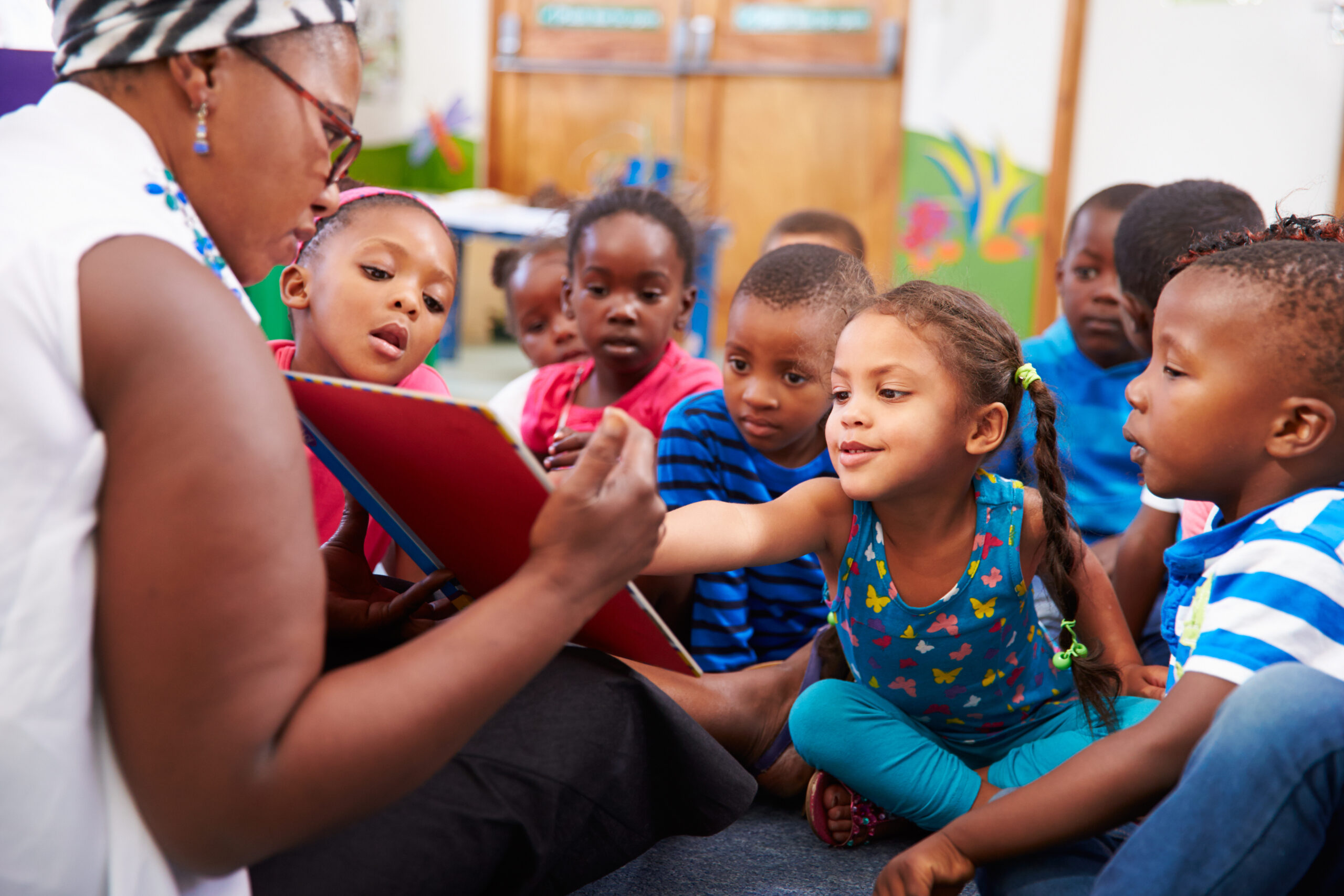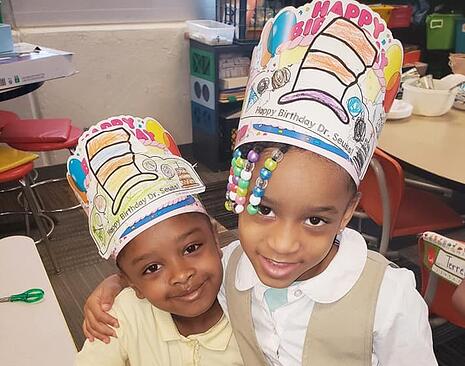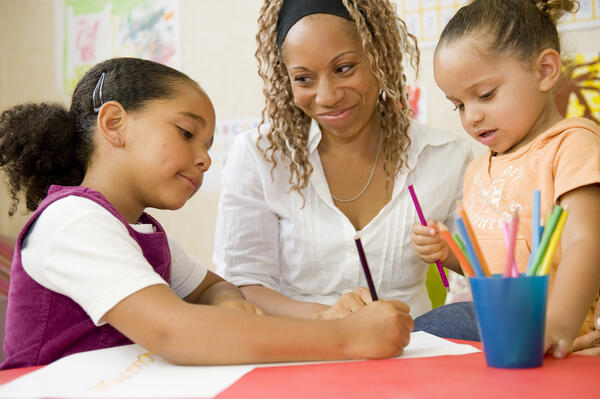Published July 20, 2020
Kindergarten is a pivotal time in your child’s education. As the beginning of their academic journey, kindergarten lays the foundations for your child’s learning, and their love of learning. Your child’s experiences at this age will impact their learning for years to come. It makes sense to want to provide your child with the very best kindergarten learning environment possible.
Children’s educational needs at this age are simple, but very important. When searching for the right kindergarten for your little one, be sure to look for these attributes. And don’t forget to take a copy of the Kindergarten Checklist with you!
 A Caring Community of Scholars
A Caring Community of Scholars
Having positive relationships with teachers and with each other helps children feel like they belong and that everyone is important. Teachers have the largest impact on your child’s life next to your own. Your child’s relationship with their kindergarten teacher sets the tone for their expectations for school for the rest of their life. Be sure the teachers at the school you choose for your kindergartener have positive relationships with each other, and with their students.
Support for Children’s Development and Learning
Teachers set up the classroom, offer materials, and plan interactions that support children’s learning and interests. A great classroom is arranged for different types of learning: space for class meetings, tables where children work together in groups, and quiet spots for independent work. Children this age need to be interested to learn. Great teachers provide activities that interest children, challenge their skills, and help them love learning.
Learning Experiences Within the Curriculum
Your child’s school has a curriculum and goals that state what most kindergartners should know and be able to do, and how they will learn these things. Teachers use the curriculum to plan lessons and activities. They pay attention to what children are interested in, what they already know, and what they might be ready to learn next.
Children’s Development and Learning Assessment
Regular assessment helps teachers understand what each child has learned and what they might be ready to learn next. Using this information, they decide which materials, activities, and experiences to provide so children continue learning. Teachers should rely on multiple assessment tools, both formal and observational, to ensure none of the child’s abilities are overlooked.
Relationships and Support for Families
Children learn best when the adults in their lives create positive, consistent environment for them at home and at school. That’s why teachers should work hard to build trusting relationships with families. They know that you are the most important people in your child’s life. To partner with families, teachers listen to families’ goals and concerns and encourage families to participate in their child’s education.
Kindergarten is such an important time in your child’s life—and in yours, too. With support from you and from knowledgeable, caring teachers, your child will see kindergarten—and school—as a fun, fair, great place to learn.
With a strong foundation built, your child will be ready for the rigorous, constructive curriculum they deserve in the years ahead. And together, you can enjoy many learning opportunities leading to your child’s life-long success!
Tags: education, Kindergarten, Kindergarten checklist, learning assessment, school assessment, school curriculum
 A Caring Community of Scholars
A Caring Community of Scholars
